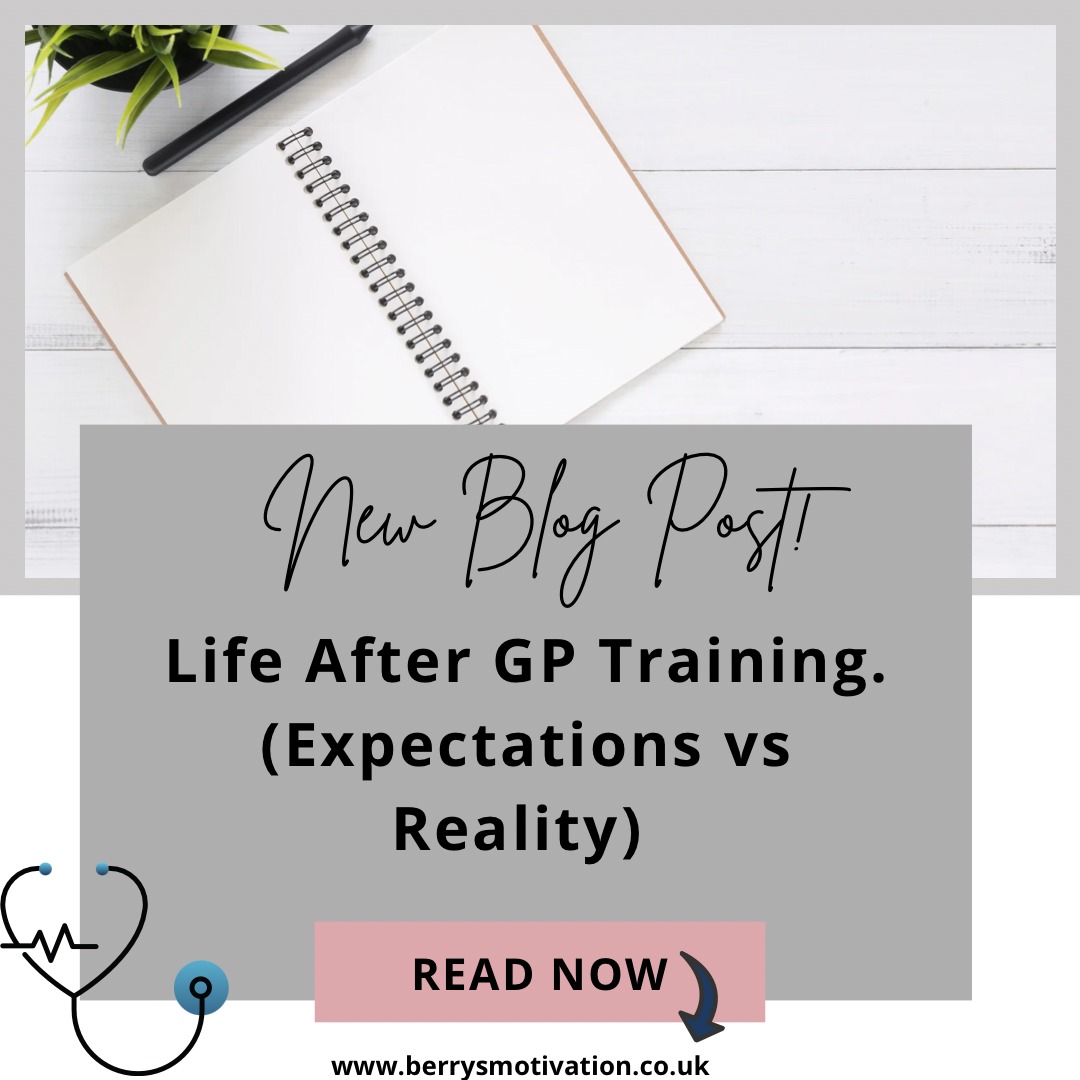
Life After GP Training (Expectations VS Reality)
Share

A General Practitioner (GP) is a fully qualified medical doctor who has gone through the training process to become a GP or Family physician as it is referred to in other countries.
Becoming a fully qualified GP or family doctor in the UK takes three long years of training and more in some cases. Your training could be longer if there are breaks in between. Such gaps may include maternity leaves, working less than full time, extended vacations, time out of training, etc. The exams in training are also not the easiest, so some people may take longer to complete them.
The expectations of a qualified GP are numerous, and they come mainly from family, friends, society and even patients. People believe that your life will change once you reach that milestone and qualify as a GP. Well, your life will really change, but not always precisely in the way that people expect.
While the expectations may differ from what people have, it is best to put them side by side with realities. This way, doctors in training are not blindsided by the realities of becoming a qualified GP.
The Expectations
As a newly qualified GP, people expect that you will have a significant increase in your pay. In addition, people hope that your job becomes easier as you may now have junior colleagues to delegate tasks. Furthermore, people think that there is an extra prestige that comes with becoming a fully qualified GP. If you are an international medical graduate, there can be even more significant pressure from home. Your family and friends may begin to assume that you are now "rich."
The Realities
The Salary: Once you qualify as a GP, your salary may not necessarily increase and may remain the same. Changes in your remuneration depend entirely on what you decide to do. For example, as a salaried GP working six sessions a week (about three days a week), your salary is about £60k/year. While this is not terrible, it is not much different from what you earn in your final year of GP training. Most people decide to work three days a week because it helps create a fair balance. You may choose to work full-time up to five days a week and earn more, but the job can get very tedious. Besides, it would be best to find a way to create a healthy balance, so you do not break down.
It is possible to become a partner in order to earn more and gain more control, but it comes with more responsibilities, including possibly finishing at 6:30-7pm each day. You can also become a locum doctor, also to earn more money, but it has pros and cons, so make sure to do your research. I'll discuss options and choices in my next post. Don't forget to subscribe to my newsletter so you don't miss anything.
The Job: When you qualify as a GP, your job essentially remains the same, with very few changes. In fact, you may even have added responsibilities but no additional pay. You will have a set number of patients assigned to you and no study days. In addition, you will have to work more independently than you did in training.
The actual workload: The typical patient list for a GP is around 30 patients daily. You may need to deal with patients face to face, through telephone consultations, or possibly during a home visit. Besides seeing patients, there are many admin duties to attend to. These duties may include acting on patients' letters from the hospital, reviewing test results, sending out referral letters, etc. It is possible that you might be on duty on some days, primarily taking care of emergency cases and supporting the nurses and other allied health care professionals in your practice. It is a dynamic field that requires a high level of dedication, and you have to be fully prepared and aware before you dive in. The honest reality is that being a GP is not an easy job. Most people think it is easier, especially colleagues in secondary care or they think it is an easy way out, but you are as busy as emergency care doctors. You have to love your job to enjoy being a GP.
The Benefits
However, being a GP is not all doom and gloom, as there are several benefits. As a GP in the UK, it is easier to migrate to other countries and earn even better pay. In recent years, the Middle East has become a destination of choice for GPs. Even other European countries are quick to employ UK-qualified GPs, offering them mouthwatering pay to migrate to their countries.
In addition, you can decide to become your own boss by starting your practice. Private doctors earn significantly higher in the UK, so it makes sense that it is something to consider. Qualifying as a GP enables you to be more flexible and try several different things before finding your niche. The bottom line is that there are no limits to what you can do, and everything depends entirely on you. This post on no limits may be useful for further reading. Be on the lookout for the next post where I will discuss options and choices after GP training. Hope you enjoyed reading this. Please leave a comment, subscribe to my newsletters and look out for my next post.
In the meantime please check out the motivations shop for wellbeing and motivational products.
shop here:
Cheers
Dr Mute'

4 comments
Thanks for the comments everyone, I am glad you liked this blog post.
Cheers
Mute’
Insightful post. Keep up the good work.
Really helpful post! Something to think about. Thanks!!
Lovely blog post…thank you